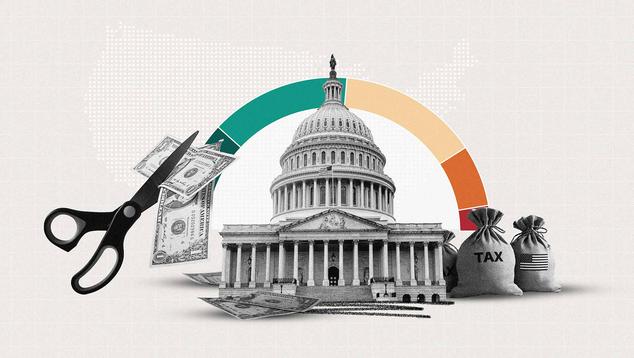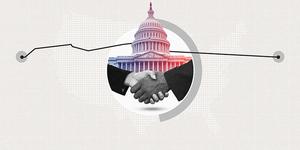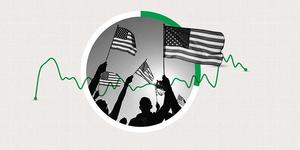WASHINGTON, D.C. — Before the latest government shutdown, nearly half of U.S. adults said Congress should reduce the deficit either “mostly” (27%) or “only” (22%) by cutting spending, whereas 17% favored relying mostly or only on tax increases. Another 27% said they prefer an equal mix of spending cuts and tax hikes.
These findings are from Gallup’s Sept. 2-16 poll, which was conducted amid fiscal disagreements between Republican and Democratic lawmakers that led to the Oct. 1 partial shutdown. The last time Gallup asked this question, in November 2012 as the country faced a year-end “fiscal cliff,” more Americans also favored spending cuts over tax increases, but the plurality favored a combination of the two.
Two readings in April and July 2011 were taken prior to negotiations over raising the federal debt limit — and, like today, pluralities favored deficit reduction through spending cuts.
Republicans Focus on Cuts, While Democrats Want Combined Solution
Partisans’ preferences for reducing the federal budget deficit have differed sharply in the past and continue to today. Democrats have historically been most likely to prefer equal spending cuts and tax increases, and a 41% plurality of Democrats now favor that approach. Another 28% favor cutting the deficit at least mostly through tax increases and 21% at least mostly through spending cuts.
Conversely, the broad majority of Republicans continue to favor spending cuts, either exclusively (38%) or mostly (42%). Independents’ preferences are currently roughly in line with the national average, as they have been in prior readings.
Increasing Taxes on Wealthy Favored Most to Reduce Federal Debt
Another question in the September poll asked Americans whether they favor or oppose seven possible actions to reduce the federal debt. Just two of the seven options garner majority-level support among U.S. adults: increasing income tax rates for upper-income Americans (63%) and increasing tax revenues by making major changes to the federal tax code (54%). Both of these concepts earn majority support from Democrats and independents but not Republicans. Just one other option, cutting defense spending (63%), is favored by a majority of Democrats, whereas less than half of Republicans and independents agree.
Conversely, majorities of Republicans support increasing tax revenues by imposing tariffs on products imported from other countries (89%); making significant changes to Medicaid and food assistance programs (75%); cutting spending for programs other than defense, Social Security and Medicare (72%); and making significant changes to Social Security and Medicare programs (56%). Each of these measures is supported by no more than half of independents and 26% of Democrats.
Bottom Line
Americans’ desire to rein in government spending, paired with their reluctance to reduce major entitlement programs or raise broad-based taxes, mirrors the same clash of views preventing lawmakers from reaching a budget agreement. Republicans are focused on spending cuts, and Democrats lean toward a combination of spending cuts and tax increases. The fiscal gridlock now driving the government shutdown reflects not only partisan differences in Congress but also a divided public that offers little clear guidance for bipartisan compromise, something that Americans want.
Stay up to date with the latest insights by following @Gallup on X and on Instagram.
Learn more about how the Gallup Poll Social Series works. View complete question responses and trends (PDF download).




